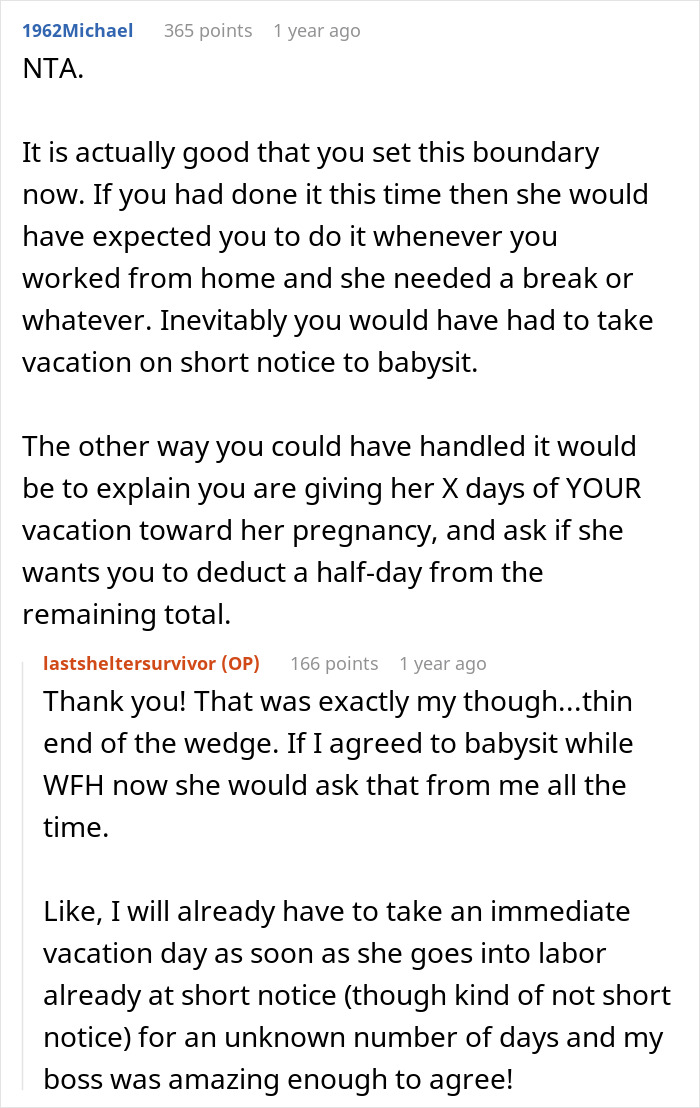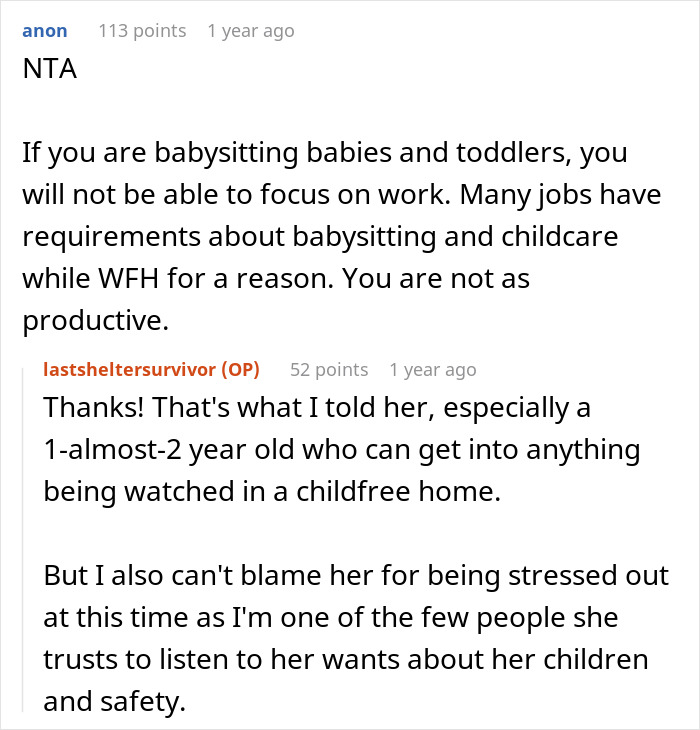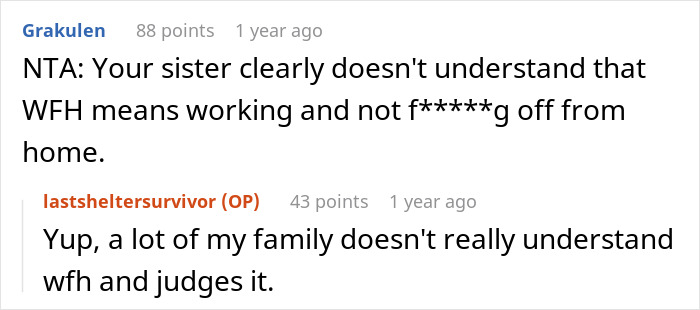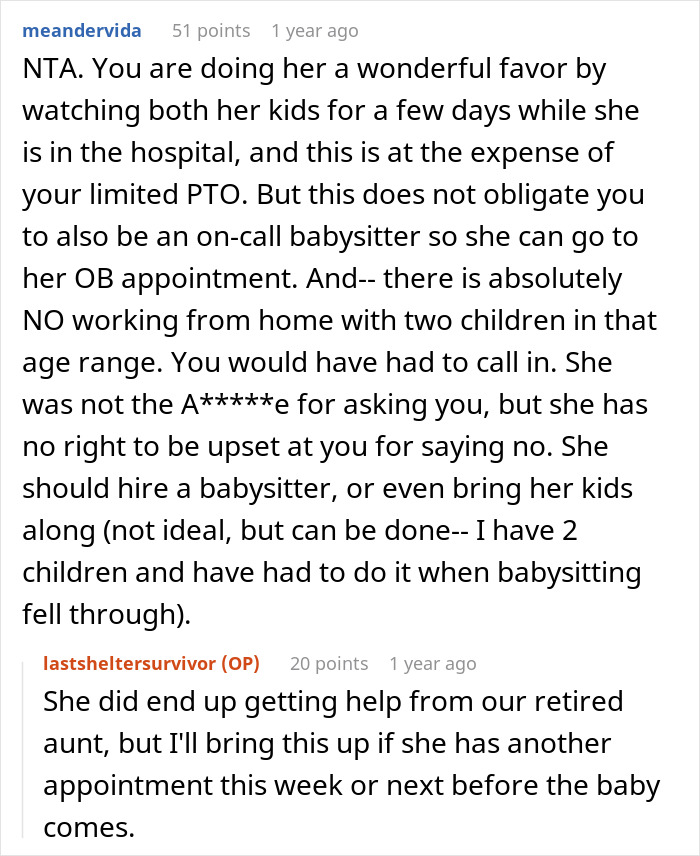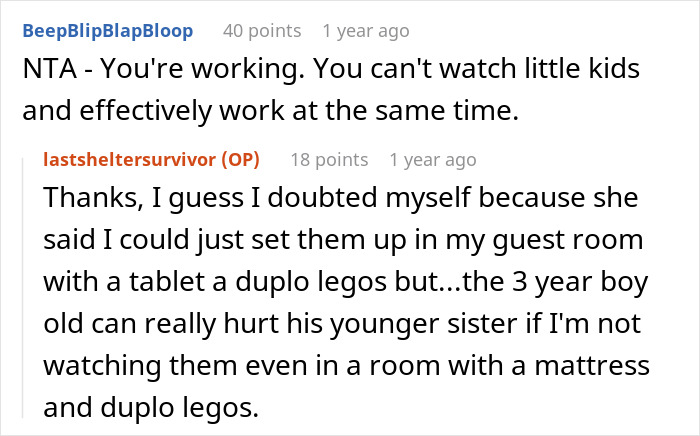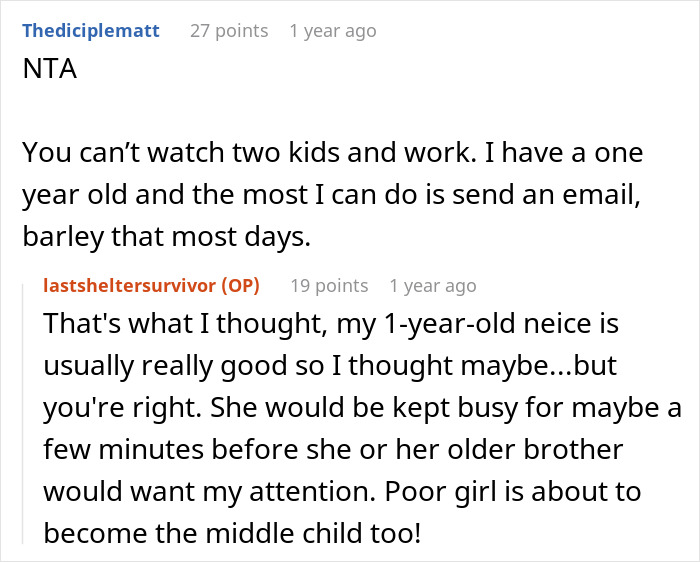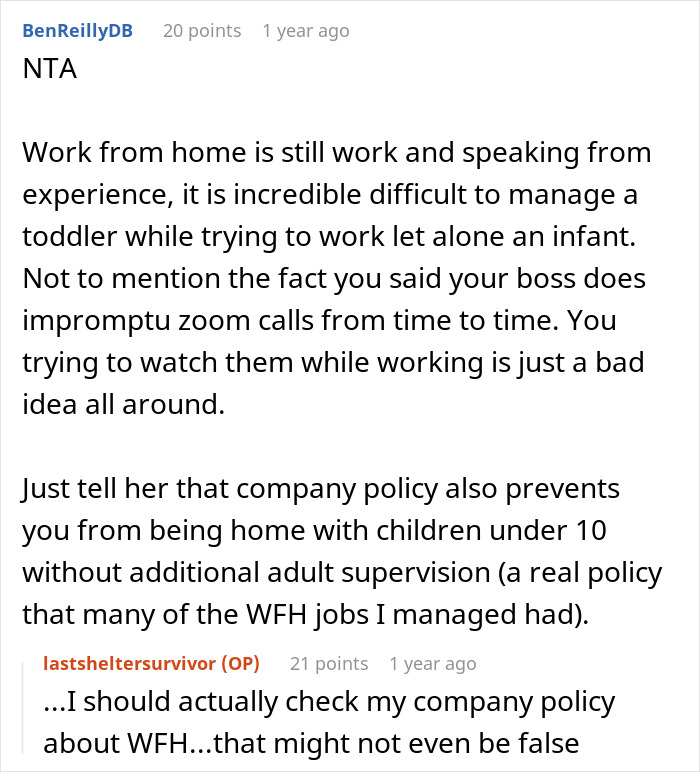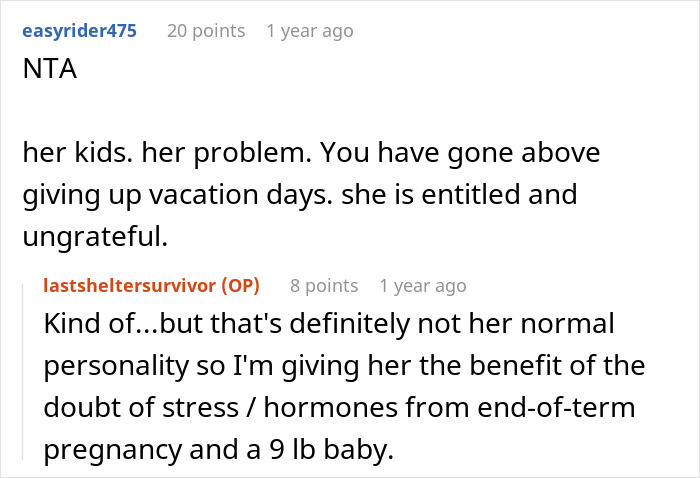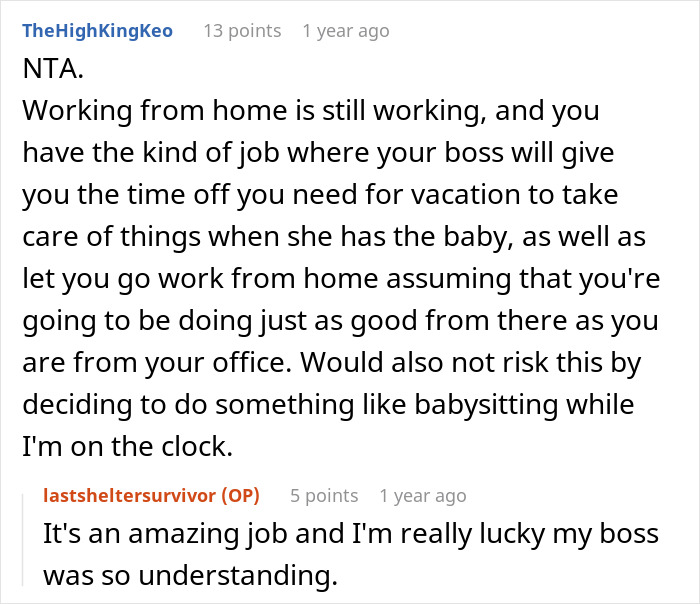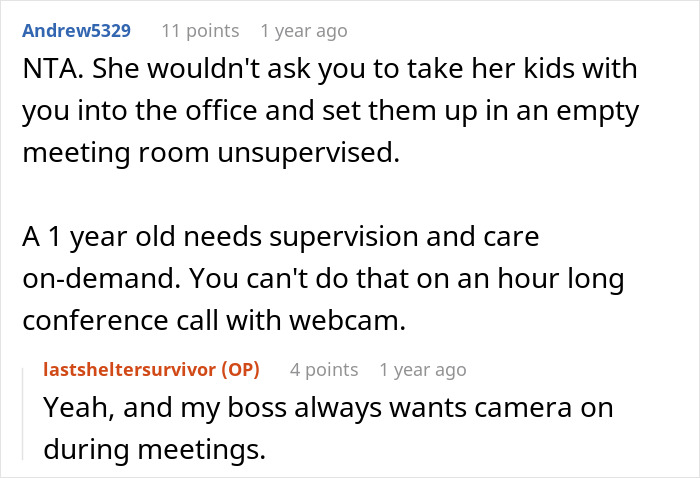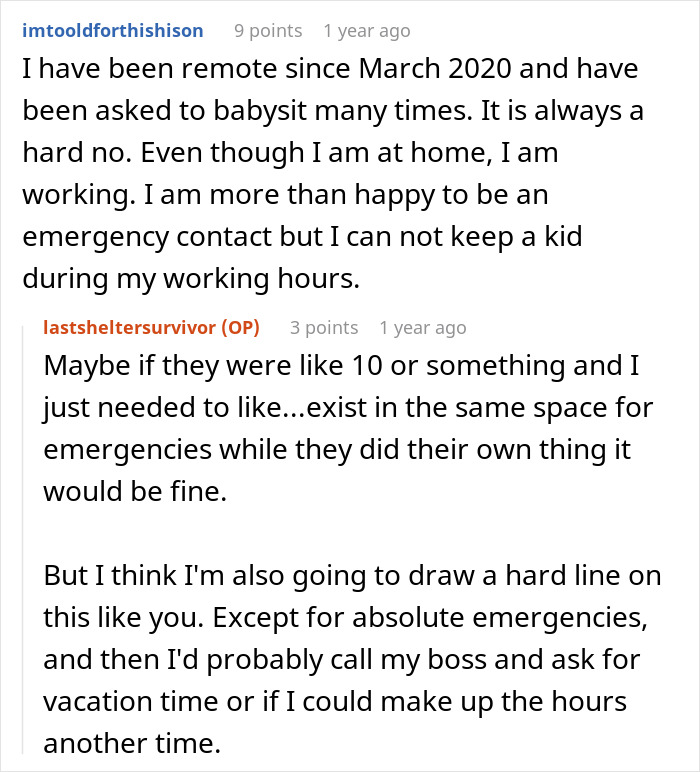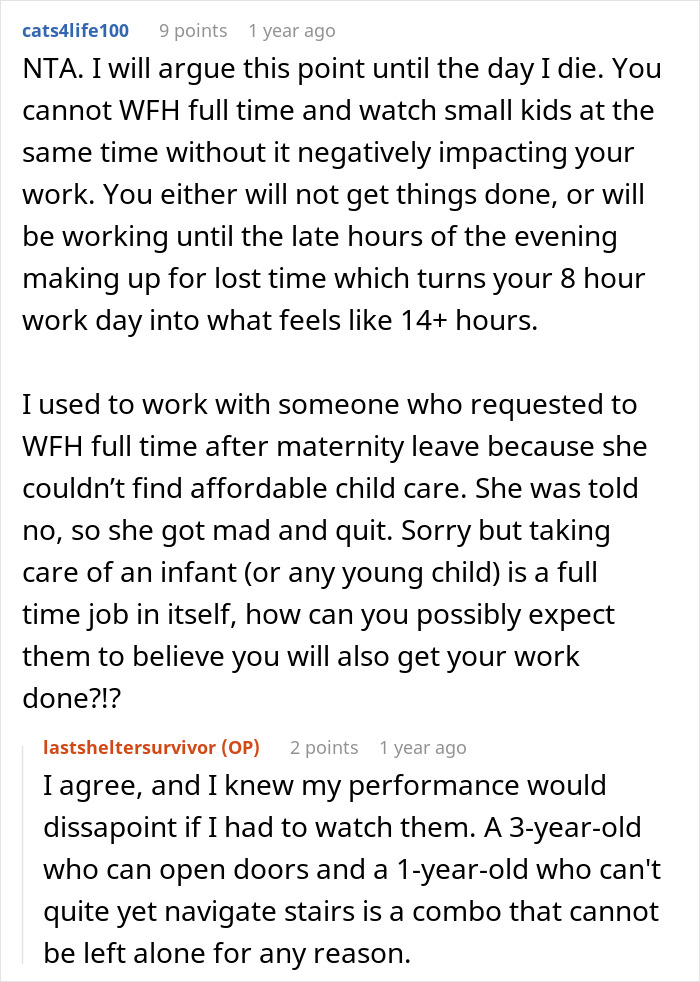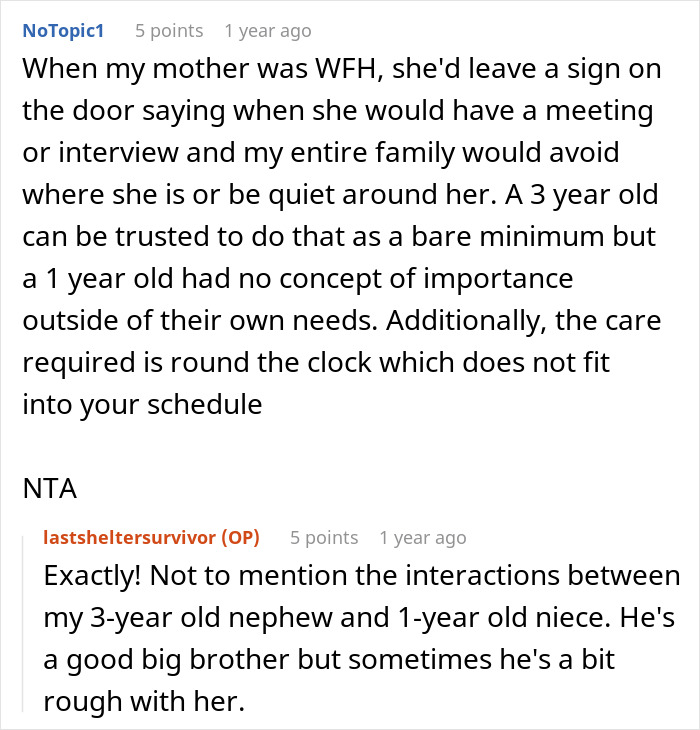Looking after children—especially the little ones—requires a lot of patience and, of course, your undivided attention. That’s why it’s rarely ever possible to do anything else when they’re around, not to mention working, which, too, typically calls for your undivided attention.
That was the reason why this redditor refused to watch her sister’s two children when she was working from home. Needless to say, that didn’t make her sister too happy.
Seeking to delve deeper into the topic of childcare and learn more about the role family members play in regards to it, we turned to two experts who were kind enough to answer a few of our questions. In the text below you will find Bored Panda’s interviews with the department chair and professor in the Department of Human Development and Family Sciences at University of Delaware, Dr. Martha Buell, and the Duff Roblin Professor of Government with a focus on care, gender, and social policy, professor at the Department of Sociology at University of Manitoba, Dr. Susan Prentice.
Looking after small children requires one’s undivided attention

Image credits: YuriArcursPeopleimages/Pexels (not the actual photo)
This woman couldn’t watch her sister’s kids, as, despite being at home, she was working
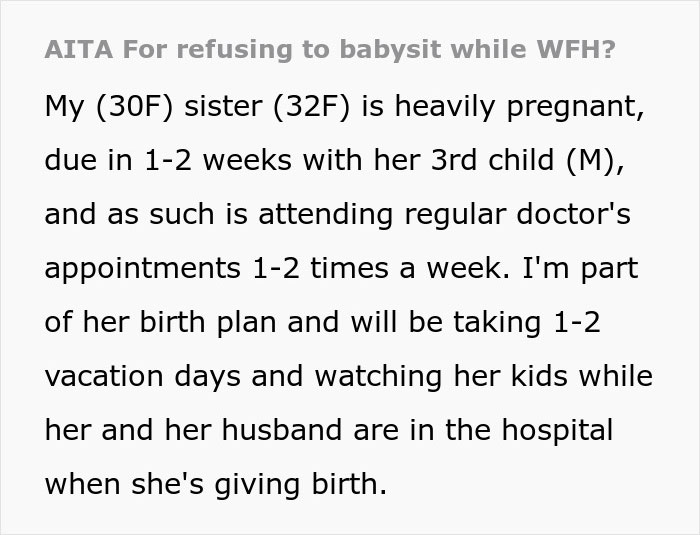

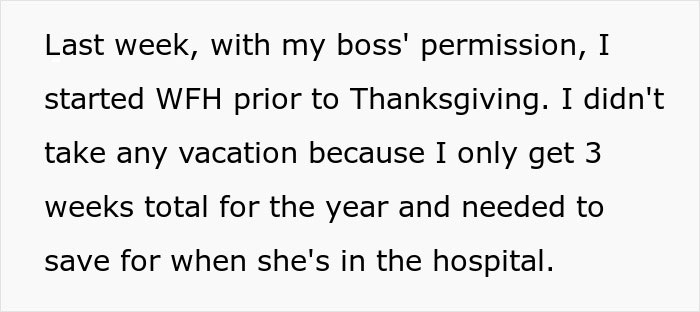
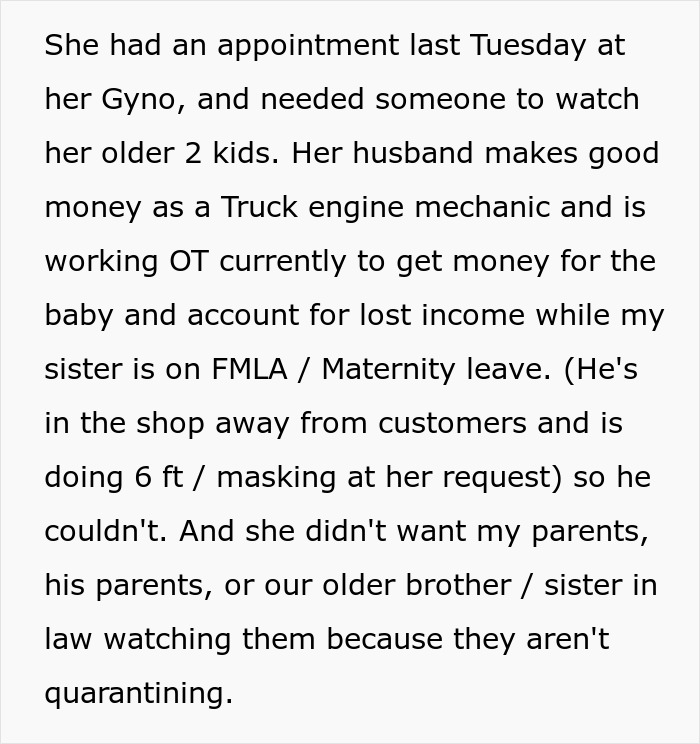



Image credits: serhiibobyk/Envato elements (not the actual photo)
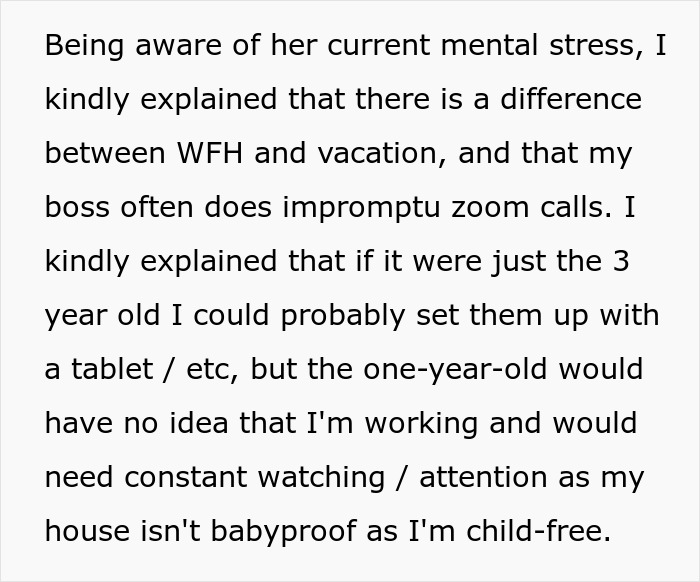



Image credits: lastsheltersurvivor

Young children must be supervised at all times
It’s no secret that kids enjoy attention, which is why they yell “mom, mom, look at this” whenever they learn or see something new or make sure that a guest is not left without a performance when visiting their home. But more importantly than that, kids need attention—especially the little ones—so they are safe.
Discussing the importance of giving kids your undivided attention, Dr. Martha Buell of the Department of Human Development and Family Sciences emphasized that the extent to which one has to keep their eyes on them at all times depends largely on the kids’ age. In the OP’s case—when the kids are one and three years old—they would need supervision constantly.
“Three-year-olds usually don’t put themselves in danger; they know how to go up and down stairs, for instance. But they don’t know enough to keep the one-year-old safe, so if it is both of them together – their interactions will need supervision,” Dr. Buell told Bored Panda in a recent interview.
“One-year-olds can usually move—crawl, creep, toddle—and they don’t know what is and is not dangerous, and they still like to explore objects by putting them in their mouths. So you need to really supervise a one-year-old, even in a baby-proofed environment. And three-year-olds will frequently need help and attention from a caring adult.”
Family members helping each other with child care is not uncommon
It’s not surprising that in the redditor’s story, the adult that was asked to look after someone’s children was a relative; anyone with children knows just how life-saving help from family members can be. And according to Dr. Buell, members of one’s kin lending a hand in child care happens all the time. “In fact it is one of the most common forms of non-parental child care,” she noted. “Often it is a grandparent, but other family members—such as aunts, uncles, nieces, and nephews—also get involved. Additionally, many two-parent families work opposite shifts so that the parents can tag team child care.”
Prof. Buell pointed out that for many families, support from other family members is the only way they can afford child care. “In the US, child care in a center-based program is often priced out of reach for families,” she noted. “In 33 states, infant child care costs more than college tuition. (In Mississippi, the state with the lowest child care costs, infant care is $5,436 annually, but in D.C. it is $24,243.) For families in the U.S., child care is very often a patchwork of families and friends helping each other.”
Another expert, Professor at the Department of Sociology at University of Manitoba, Dr. Susan Prentice, seconded the idea that raising children is often a team effort. “It is a classic problem: families that try to patch together solutions to solve what really should be seen as a public policy crisis.
“The pregnant woman and her sister are doing their best to support each other in caring for children, while also working for a living; and they have to do this in a context where accessible, affordable, and high-quality childcare is too often entirely missing,” the expert added. “In the US, this gets worse, as pregnant people—and adoptive parents—regularly also lack paid parental leave to recover from birth to care for newborns.”

Image credits: Vlada Karpovich (not the actual photo)
The only way one can work productively and look after little kids is if they’re napping
Both experts agree that working—even if from home—and looking after kids is a ‘mission impossible’. “Anyone who has spent time with a one- and a three-year-old knows that nobody can ‘work from home for pay’ for a full day while also caring well for the children,” Dr. Prentice told Bored Panda.
Dr. Buell added that even having older children at home made working from home difficult for many people when schools were closed due to COVID. “With very young children they need constant supervision, and older preschoolers often need help with activities,” she noted.
“Once a child is somewhat self-sufficient (for example, when they can use the toilet on their own, find a snack, look at a picture book) by around 6—with a pretty wide range given ability levels—they can be left on their own if the environment is safe and set up with activities for them to do on their own.”
Prof. Buell continued to suggest that the only way the OP would have been able to get any work done is if both of the little ones were napping. Needless to say, the chances of them napping through the entire workday are non-existent. So it’s no surprise that the woman couldn’t say yes to her sister asking for help, but that, according to fellow redditors, didn’t make her a jerk.
Fellow netizens didn’t think the redditor was being a jerk to her sister
